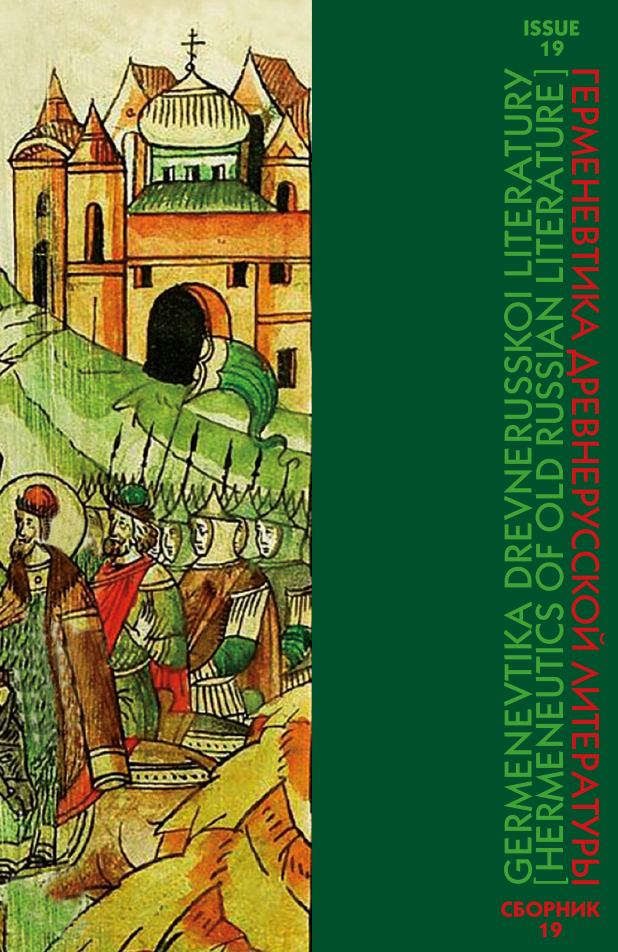Abstract
The article examines the main trends in the perception of The Tale of Igor’s Campaign in Russian prose of the 20th century. A huge intermedial field has arisen around the Lay as a precedent text of Russian culture. The influence of the medieval monument on literature, first of all, was reflected in the lyrical works. This aspect of reception has been studied more fully. Not so often prose works attracted the attention of researchers in this aspect. Their consideration was carried out fragmentarily. An exhaustive account of creative appeals to The Tale in the prose of the 20th century is impossible. The range of author’s readings and interpretations is too wide. The article attempts to systematize the forms and directions of reception, and also outlines the most sought-after motifs, images and fragments of the 12th-century literary monument in the new literature. The traditional appeal to The Tale is the use of its fragments as epigraphs. The monument text plays a special role in creating the effect of epic sounding of the recipient text. In a number of works, the nature of reception can be defined as plot. The fate of The Tale acts as the starting point of the entire narrative. The facts of convergence of fiction and popular science literature are noted. Not only The Tale itself becomes attractive, but also the whole complex of widely known information about the discovery and study of the monument. At the turn of the century, the decanonization of meanings and even their travesty becomes possible. A number of appeals to the monument of the 12th century in works not related to the Old Russian themes, testifies to the high influence, axiology of The Tale.
REFERENCES
1 Kataev, V.B. Igra v oskolki [Game of Pieces]. Moscow, MSU Publ., 2002. 252 p. (In Russian)
2 Pautkin, A.A. “‘Slovo’ i ‘Delo’ o polku Igoreve (Rus’ naiznanku v romane Khol’ma van Zaichika)” [“‘Word’ and ‘Deed’ about Igor’s Campaign’ (Rus’ Inside Out in the Novel by Holm van Zaychik)”]. Vestnik Moskovskogo universiteta. Seriia 9. Filologiia, no. 6, 2022, pp. 133–140. DOI: 10.55959/MSU0130-0075-9-2022-6- 133-140 (In Russian)
3 Ranchin, A.M. “Funktsii reministsentsii iz ‘Slova o polku Igoreve’ v romane Iuriia Tynianova ‘Smert’ Vazir-Mukhtara’.” [“Functions of Reminiscences from ‘The Tale of Igor’s Campaign’ in Yuri Tynyanov’s Novel ‘The Death of Vazir-Mukhtar’.”]. Izvestiia Rossiiskoi akademii nauk. Seriia literatury i iazyka, vol. 78, no. 3, 2019, pp. 24–32. DOI: 10.31857/S241377150005409-2 (In Russian)
4 Sazonova, L.I. “‘Slovo o polku Igoreve’ v poeticheskikh kontekstakh XX v.” [‘“The Tale of Igor’s Campaign’ in Poetic Contexts of the 20th Century”]. “Slovo o polku Igoreve.” Kompleksnye issledovaniia [“The Tale of Igor’s Campaign.” Comprehensive Research]. Moscow, Nauka Publ., 1988, pp. 315–335. (In Russian)






